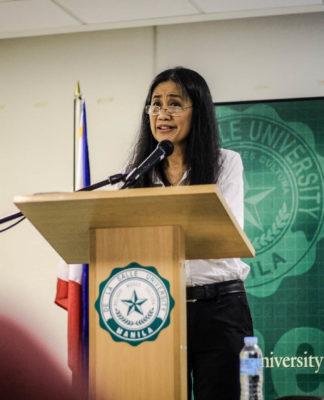IN THE dark days of the Spanish Civil War, one man rose above adversities, his faith unshaken even when everything else fell apart.
"There Be Dragons" (2011), directed by Roland Joffé, delves into the life of Opus Dei founder Jose Maria Escriva (Charlie Cox), whose faith was put to test amid the dangers posed by war before “good triumphed over evil” surrounded by fictional characters.
Joffé, however, weaved Escriva’s life into a set of fictional characters to make a moving story about forgiveness.
Joffé, known for directing "The Mission" and "The Killing Fields," is a self-described agnostic who took interest in making a film out of the life of Escriva because unlike other religious-themed films, it was straightforward and took religion on a serious note.
The story begins in the 70's with a journalist named Robert (Dougray Scott), who investigates Escriva as the priest becomes a candidate for sainthood. This leads him to the discovery that his estranged father, Manolo (Wes Bentley), was a childhood friend of Escriva, and that they attended the seminary together. But the friendship turned sour later on and they found themselves at opposite sides of the civil war.
Manolo becomes a double agent and falls in love with a beautiful Hungarian dissident, Ildiko (Olga Kurylenko), who joined the left-wing militia to help spark a revolution. But Ildiko turns him down to be with the militia leader Oriol (Rodrigo Santoro), which leads Manolo to a path of betrayal.
St. Escriva is depicted in the outset as “not an ideal saint” because of his mischievous acts. At one point he almost kills someone, but eventually decides to shed off the misdemeanors to live the simple and sanctified life of a seminarian.
The Spanish Civil War breaks out and those serving in the Church are seized, putting the life of Escriva in peril.
Although taunted by his peers, Escriva gets the support and love of his friends, which makes his faith in God even stronger.
Reconciliation, the main theme of the film, is evident as many characters turned the other cheek after realizing their own shortcomings and mistakes.
The sequence of events in the life of Escriva was carefully laid out in a manner that one could get a good glimpse of his life.
The film’s storyline did not harbor on melodrama and was kept interesting by the fast-paced turn of events.
The film successfully established a connection between the two different stories of the journalist Robert and St. Escriva, who both experienced the challenge of learning to forgive.
Opus Dei (Latin for Work of God) was founded by St. Escriva on Oct. 2, 1928 to help ordinary people sanctify day-to-day work.
The movie widens the knowledge of viewers not only on the life of the saint who has contributed greatly to the Catholic Church, but also on the history of Spain, which has become increasingly secular.
The film can become an avenue for agnostics and atheists to learn that it is through God that people can prevail over everyday challenges, as shown by the example of St. Escriva. BRYLLE B. TABORA















